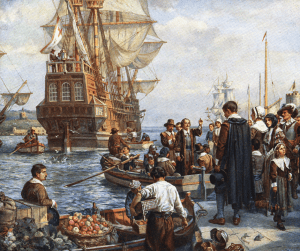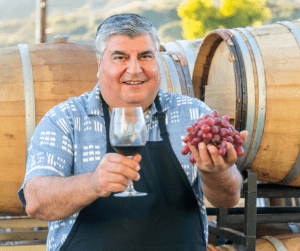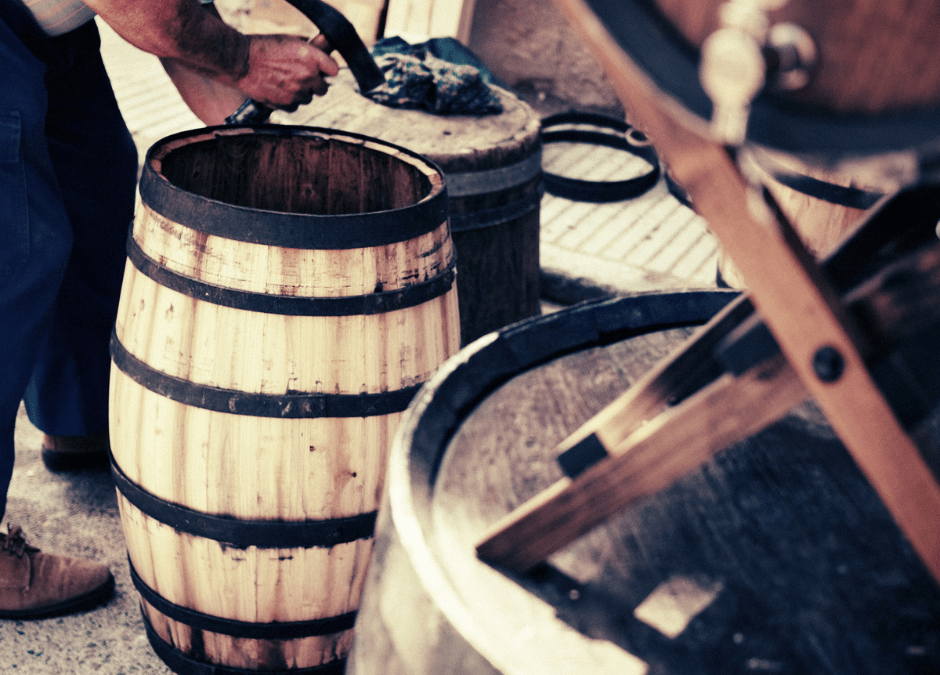 In 1620 when The Mayflower set sail on the Atlantic Ocean in a 66-day-long journey to the New World, one man was responsible for building the barrels that preserved valuable supplies for the passengers. 21-year-old John Alden worked as a cooper in Southhampton, England where The Mayflower made a stop for barrels full of fresh water, gunpowder, dry foods such as flour and grain, and of course… wine!
In 1620 when The Mayflower set sail on the Atlantic Ocean in a 66-day-long journey to the New World, one man was responsible for building the barrels that preserved valuable supplies for the passengers. 21-year-old John Alden worked as a cooper in Southhampton, England where The Mayflower made a stop for barrels full of fresh water, gunpowder, dry foods such as flour and grain, and of course… wine!
So what is a cooper?
A cooper is easily defined as someone who makes wooden casks, also known as barrels. The craft dates back for centuries, serving a vital role in the storage of goods. The Egyptians used wooden casks for winemaking which is still practiced today. The earliest coopers made straight-sided wooden buckets. When the implementation of iron came into play, these buckets would become the prototypes that inspired the impressive closed cask that people relied on for sealing goods and keeping them fresh.
There are different coopers for crafting different barrels. A white cooper created utensils, bowls, pails, butter churns, spoons, ladles, and other kitchen implements. While a slack cooper fashioned slack barrels for transporting nails, glass, cement, dry goods, and pelts, a tight cooper produced barrels for liquids, like water, wine, whiskey, milk, oil, and paint. Barrels had to be made specific to their contents. For example, if it had to keep things dry, like tobacco or nails, or wet for liquids.
 You may be wondering, how does the cooper become a cooper? This is a highly skilled trade that requires expertise to ensure the barrel will not crack or leak leaving the contents unreliable. The process of crafting the barrel is learned by the apprentice only by the master. Take John Alden for example. His journey as a cooper began like many others, as an apprentice. Often, a father will pass down the trade to his sons who would continue the cooperage legacy in their family.
You may be wondering, how does the cooper become a cooper? This is a highly skilled trade that requires expertise to ensure the barrel will not crack or leak leaving the contents unreliable. The process of crafting the barrel is learned by the apprentice only by the master. Take John Alden for example. His journey as a cooper began like many others, as an apprentice. Often, a father will pass down the trade to his sons who would continue the cooperage legacy in their family.
The cultural significance of the cooperage is evident in its rich history. Early civilizations relied heavily on the fine production of casks to ensure the quality and dependable transportation of goods. Today, the art of the cooper is a masterful skill that serves a purpose in the production of wine, beer, other distilled spirits, and even artisanal food production. There are unique qualities to the cask that develop the taste and flavor of its contents.
The art of the cooper is one that is deeply rooted in tradition. In the digital age that we live in, we do not depend on beautiful handcrafted goods as much. Instead, quick production and cheap materials have become most consumers’ first choice. Cooperage heritage uses masterful construction but is also an art form woven through the tests of time.
As the Pace Docs team eagerly awaits our journey to southern Spain, we look forward to meeting coopers of the region and learning about their rich culture while witnessing the artistry of their craft.
Be sure to follow along on our socials to see our process!

